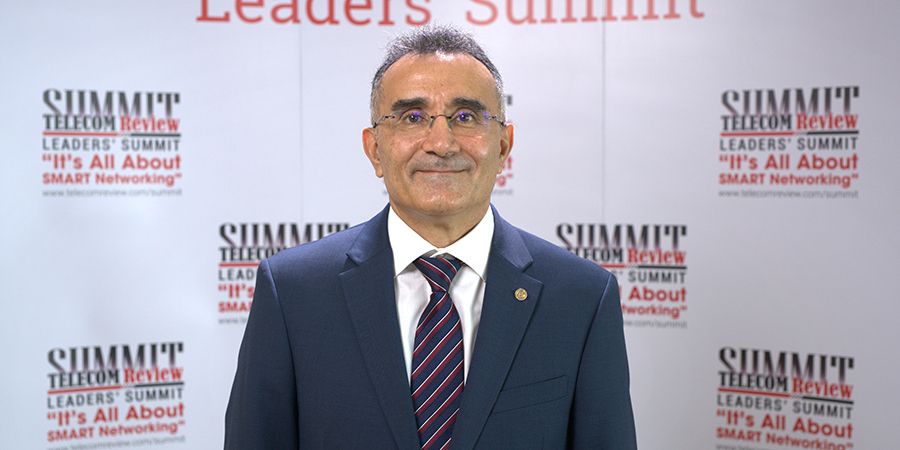On the occasion of the 15th edition of the Telecom Review Leaders' Summit, the largest VIP gathering in the field of ICT, Telecom Review sat down with Dr. Bilel Jamoussi, chief of the ITU study groups department, to discuss the smart projects he plans to accomplish in the future and the challenges faced amid Covid-19 in addition to cyberattacks.
What are the ICT issues that will be raised during the ITU plenipotentiary conference in 2022?
The ITU plenipotentiary conference in 2022 in Romania will tackle many important topics. Primarily, the election of the five elective positions for the ITU, the council members and the regulatory board. The plenipotentiary conference also looks at the financial plan for the ITU and agrees on a number of resolutions that are important for the union for the next four years. Topics of great importance to the membership will be discussed such as connectivity, managing post Covid-19 era, and improving the lives of citizens through digital services, as well as the cybersecurity aspects to ensure trust and security in the use of ICTs.
These are all critical topics for our new digital society, and the ITU being the United Nation’s specialized agency for information and communication technologies with many private sector companies over nine hundred entities, is really the unique spot for this international dialogue to take place.
In a sector that has experienced a lot of changes and challenges due to the outbreak of Covid-19, how did the ITU address these challenges?
The Covid- 19 was very painful on human scale but on the other side, it has been an opportunity to accelerate digital transformation worldwide, probably by at least six years.
During confinement, countries around the world found no other refuge than to connect citizens remotely for teleworking, education at home, telemedicine and for financial transactions. Many countries sent remittances to their citizens to help them during the pandemic through mobile phones. So, it was an opportunity to really highlight the importance of connectivity and digital services in many countries.
Members of the ITU have worked very closely with us to leverage all of the standards that we have developed over the years for users’ authentication, financial inclusion, and mobile money, for instance. These services could be rolled out for citizens in a record of time.
Due to the high number of cyberattacks in the region and around the world, how has ITU been able to address and reduce this type of security threat?
Security and identity management are one of the fundamental outputs from the ITU standards process. The public key infrastructure which is the use of protocol to secure all transactions in the network is an ITU standards called the “X.509” and a great importance lies in using that protocol, deploying it and having the certificates to digitally sign to have strong authentication that is passwordless.
The ITU also works with all of our member states to ensure that we have cyber centers and cyber capabilities, so capacity building among our member states is an area that the ITU is very involved in. There’s a workflow between the standards bureau and the ITU team that develops standards, that looks at projects and capacity building and ensuring that those projects are built on international standards. Our member states can thus move very rapidly in securing their infrastructure, providing digital identity to their citizens and authenticating users on the network.
What are the smart and digital plans and projects that the ITU aims to achieve in the future?
Digital transformation is on the agenda of every policy maker, ICT minister, telecom regulator and digital regulator, because the physical world needs the technology to transform quickly in the post Covid era. Smart cities are an illustrative example with the ability to connect citizens to all the city services and then to smart nations so that the nation provides digital services to its citizens.
Digital health is another example. We are working very closely with the World Health Organization to use AI in the health sector. AI algorithms on smartphones can help countries with low number of doctors to benefit from all remote health services.
Transportation is the third example where ICTs are used to reduce the number of fatalities on the road through intelligent transportation systems and autonomous and assistant driving. Recently, we launched a new initiative on AI for road safety to encourage the least developed countries and low- and medium-income countries to start collecting data about accidents, drivers, automobiles, locations of the accidents and how quickly the emergency services came in order to use that data and AI algorithms to predict, prevent and try to mitigate and manage accidents.
Last but not least is third areas natural disasters management based on satellite imaging and the IoT. We can manage fogs, fires and much more. All of these rely on two critical components, connectivity - 4G, 5G with robust fiber optical infrastructure - and digital infrastructure - the data centers.









